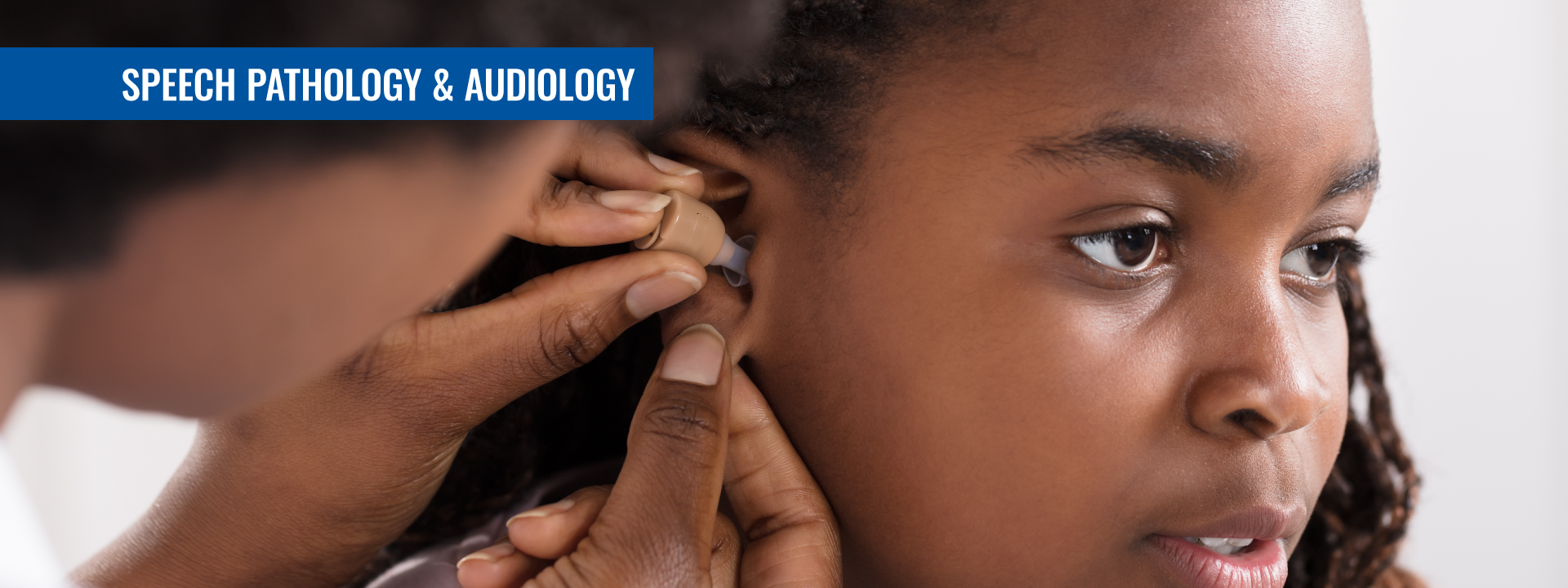The Significance of a Speech Pathologist in Young Children’s Development
The Significance of a Speech Pathologist in Young Children’s Development
Blog Article
How a Speech Pathologist Can Help Improve Communication Skills
Effective interaction is a keystone of individual and professional success, yet lots of individuals face obstacles that impede their ability to share themselves clearly. A speech pathologist is equipped to attend to these barriers via targeted evaluation and intervention methods tailored to each person's needs.
Recognizing Communication Conditions
Comprehending interaction conditions is necessary for recognizing just how they impact people' capability to reveal themselves and engage with others. Communication problems include a vast array of difficulties that affect speech, language, and social communication, frequently preventing effective interaction. These disorders can occur from numerous elements, consisting of neurological problems, developmental hold-ups, physical impairments, or mental concerns.
Speech disorders might show up as difficulties in voice, expression, or fluency production, influencing just how words are pronounced or talked. Language problems, on the various other hand, involve difficulties in understanding or making use of language, which can impede both non-verbal and spoken interaction. Social interaction disorders are defined by problems in the practical aspects of communication, such as taking kip down discussion or understanding social signs.
The consequences of interaction problems are profound, impacting not only the individual's capacity to share thoughts and feelings but likewise their social relationships, academic possibilities, and overall high quality of life. Awareness of these disorders can promote compassion and support, encouraging effective techniques for interaction and engagement. Comprehending the intricacies of interaction disorders is a critical step towards promoting inclusivity and resolving the demands of those affected.
Function of a Speech Pathologist
Speech pathologists often play an essential duty in diagnosing and dealing with communication conditions, utilizing an array of evidence-based strategies customized to every individual's needs. These professionals work with individuals across the lifespan, from children with speech delays to adults recovering from strokes or traumatic mind injuries. Their knowledge encompasses a variety of interaction concerns, consisting of articulation, voice, fluency, and language conditions.
In restorative settings, speech pathologists make use of structured interventions made to boost communication abilities. They may implement approaches such as speech exercises, language games, and social interaction training to assist in improvements in expressive and responsive language capacities. Speech Pathologist. In addition, they educate customers and their families concerning effective interaction techniques and flexible methods to navigate day-to-day interactions
Beyond straight therapy, speech pathologists team up with other health care caretakers, instructors, and experts to ensure an extensive strategy to treatment. They advocate for clients by giving sources and support, allowing people to attain their communication goals and enhance their general lifestyle. As specialists in the field, speech pathologists are necessary in cultivating reliable communication, promoting independence, and improving social involvement for those with interaction obstacles.
Analysis and Medical Diagnosis Refine
The assessment and diagnosis process conducted by speech pathologists generally includes a detailed examination to recognize interaction conditions precisely. This procedure starts with an in-depth medical history, where the medical professional gathers essential details regarding the person's medical, educational, and developmental background. Understanding the context of the person's interaction problems is necessary for a precise diagnosis.
Following the medical history, speech pathologists make use of standard tests and informal assessments to review numerous elements of communication, including speech audio production, language comprehension, meaningful language, and social interaction skills. These assessments are customized to the person's age and particular concerns, giving useful data for evaluation.
Monitoring is also a crucial part of the evaluation process, as it permits the clinician to see direct exactly how the individual interacts in natural setups. Additionally, meetings with relative and instructors can see this page provide understanding into the person's communication obstacles across various settings.
When the analysis is total, the speech pathologist synthesizes the searchings for to determine a medical diagnosis and suggest appropriate interventions. This thorough evaluation procedure guarantees that people receive targeted assistance customized to their distinct interaction needs, laying the foundation for reliable therapeutic methods.
Therapeutic Methods and Approaches
Numerous restorative strategies and strategies are utilized by speech pathologists to resolve a variety of communication conditions properly. One widely used approach is expression therapy, which focuses on remedying speech appears through repeating and visual cues. This method is specifically valuable for individuals with speech audio conditions.
One more reliable strategy is language intervention, which improves both responsive and meaningful language abilities. This might involve interactive activities that promote vocabulary development, syntax understanding, and conversational abilities. In addition, Recommended Reading speech pathologists frequently utilize social skills training to enhance pragmatic language capabilities, allowing people to browse social interactions a lot more effectively.
Fluency shaping and stuttering adjustment methods are particularly created to help those experiencing fluency conditions. These methods assist clients develop smoother speech patterns and manage the physical and emotional parts of stuttering.
Furthermore, alternative and augmentative interaction (AAC) systems are used for people with serious communication impairments. These systems, which can consist of motions, symbols, or electronic tools, supply necessary support for her comment is here effective interaction.
Advantages of Speech Therapy

In addition, speech treatment can help in establishing important listening and comprehension abilities, promoting much better interaction in discussions. People with cognitive-communication conditions can also profit, as therapy concentrates on enhancing memory and analytical capacities, necessary for effective communication.
An additional critical element is the psychological support given during treatment sessions. Speech pathologists produce a risk-free atmosphere, motivating clients to overcome anxiety and frustration pertaining to their interaction issues. This assistance can result in boosted self-confidence and overall psychological well-being.
In addition, early treatment through speech treatment can avoid more problems, ensuring that individuals reach their complete communicative capacity. Overall, the benefits of speech treatment extend beyond simple speech improvement, positively influencing various measurements of life for those affected by communication troubles.
Conclusion
In recap, speech pathologists play a crucial function in resolving communication conditions via assessment, medical diagnosis, and customized therapeutic interventions. By using evidence-based techniques, these experts improve people' speech and language capabilities, promoting enhanced quality, fluency, and social interaction skills. The benefits of very early treatment underscore the significance of seeking help from speech pathologists, as their competence can dramatically boost communicative potential, ultimately causing higher success in both professional and personal spheres.

Speech pathologists often play an essential role in identifying and dealing with interaction disorders, utilizing an array of evidence-based techniques tailored to each individual's demands. As specialists in the field, speech pathologists are necessary in cultivating effective communication, advertising independence, and improving social engagement for those with interaction challenges.

Report this page